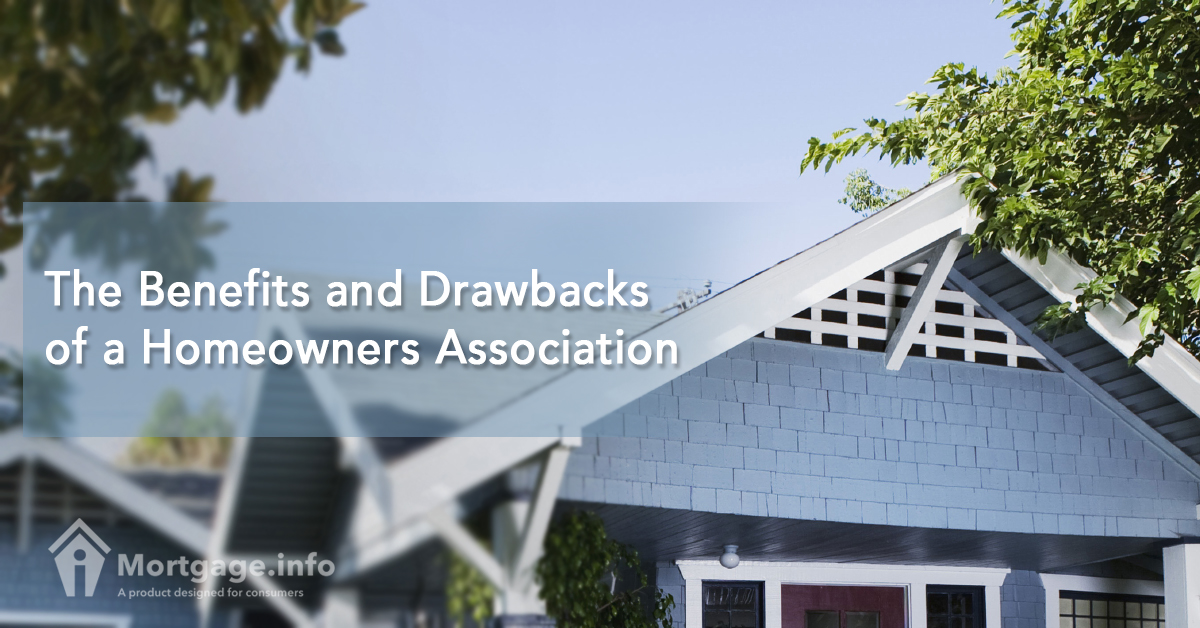A homeowners association governs certain developments. These include condominiums, PUDs, and certain single-family home subdivisions. To you it might seem like just another monthly expense that you don’t want to pay. However, an association does many things for you. An organization with good management and a plan can really benefit a community. On the other hand, an HOA with poor management can hinder your area. Here we will discuss the pros and cons.
Benefits of a Homeowners Association
Keep Everything Looking Uniform
Your homeowners association likely has rules regarding the changes any homeowner can make to their home. They also have rules regarding the upkeep of a home. They oversee things like excessive weeds, uncared for laws, and outrageous exterior paint colors. This helps you to avoid that neighbor who decides to paint his house bright purple on a whim. It also protects you against those neighbors who neglect to care for the exterior of their home. Neglected homes are an eyesore and decrease the value of your property. The association tries to avoid this from occurring.
The Community Stays Maintained
The common areas of your subdivision or condominium development need frequent maintenance. Without an association, the upkeep might not occur as often as you would like. In addition, it might cost you or other homeowner’s extra money for the work. Regular association fees help to pay for the upkeep of the common areas. This means you share the expense with everyone else living in the area. In the end, you pay fewer expenses at once. It also helps to increase the aesthetic appeal of your area.
Less Work for You
Some associations handle the lawn upkeep and snow removal. This is definitely the case in condominium and PUD developments. You may also find this in certain single-family subdivisions as well. This takes the burden off you. The company hired by the association will cut the grass, trim the bushes, and even plant flowers. They will also remove the snow from the driveways and sidewalks, helping to keep the area safe for everyone around you. You don’t have to find the companies to do the work either – the association has contracts with companies to regularly complete the work.
Possible Recreational Benefits
Many associations offer amenities for its residents. This may include a pool, tennis court, basketball court, work out facility, or ball fields. Every development has different amenities. Don’t expect these things to be present at every development. If they do exist though, it will be a part of the monthly costs. If you will use the amenities, it can be worth it because the amenities are so convenient.
Cons of a Homeowners Association
You Have to Answer to Someone
If you want to make changes to your home, you have to answer to the homeowners association. This usually pertains to changes outside the home, but all changes need approval. This could leave you without approval to make your desired changes. It can also increase the time it takes to complete the work. In some cases, approval can take up to 30 days. Careful planning is necessary when you live in an area with an HOA.
The Financial Status of the HOA can Hurt You
The homeowners association dictates what type of financing you can obtain on your home. If you want to purchase a home in an HOA, the financials must be in good condition. Fannie Mae, the FHA, and the VA all evaluate the status of an HOA. They look at their budget, reserves, and any outstanding litigation against them to determine if they will allow financing in the development. Refinancing can even be an issue. If the association has any current ligation or they did not renew their status with FHA, for example, you cannot refinance.
The Regulations can Limit You
Each HOA has certain regulations. For example, some do not allow above ground pools. Others do not allow residents to use their home to run a business. Reading the fine print of the HOA rules before you purchase a home can help you determine if it is right for you. This is especially true if you have any unique circumstances, such as working out of your home.
It Costs you Money
Last, but not least, the homeowners association dues cost you money. Each association is different – some charge monthly, quarterly, or annually. Most condominiums require monthly dues which amount to more than $100 per month. Others bill their homeowner’s quarterly or annually. This can add to the expense of owning a home or condominium.
Not every homeowners association is the same. Some have fewer restrictions while others are rather stringent about what they allow. What you prefer depends on how you live. Do you like to make many changes to your home? Do you enjoy having someone oversee the changes you and others make? If uniformity and the value of your property matter to you, an association can benefit you. On the other hand, if you prefer to do what you want with no one standing in the way, you might begrudge an association and its rules.
No matter where you stand on the issue, make sure to read the fine print of any association’s’ documents before purchasing a home. Even the most flexible person might find issue with something and association does or doesn’t allow. Knowing what you may have to deal with in the future can save you many headaches and financial strain in the future.

